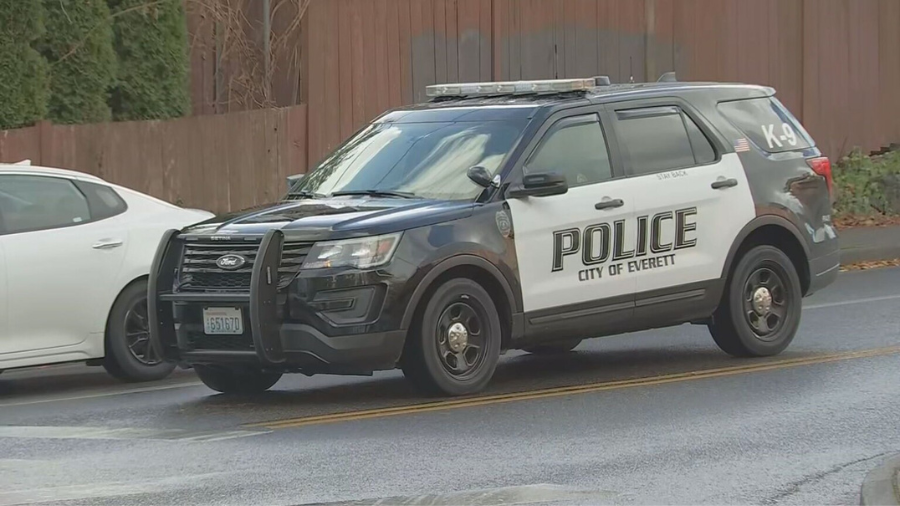Defense debunks ‘shaken baby syndrome’ in Tacoma trial
Oct 13, 2014, 6:05 AM | Updated: 8:52 am
Not long after a 4-month-old boy came into the emergency room at a Tacoma hospital, doctors were sure his head injuries were the result of abuse. It happens all the time. The baby wouldn’t stop crying. The father was arrested and put on trial.
But also on trial is the diagnosis itself.
When doctors examined the baby in April 2013, they found a familiar triad of symptoms; retinal hemorrhage (bleeding in the eyes), subdural hematoma (blood on the brain) and cerebral edema (excess fluid on the brain.) When Jeremy Yerger was arrested, police say the father gave a conflicting statement, first admitting then denying he shook his infant son, adding, “I’m sure I did something to hurt him.”
One doctor told police it was a classic case of “shaken baby syndrome.”
But some child abuse experts now call that long-accepted diagnosis “bogus.” They claim that the force involved in shaking a baby differs only slightly from the forces to which an infant’s head is subjected in normal activities and accidental injury.
An expert in pediatric neuro-radiology testified for the defense last week in Yerger’s assault trial at the Pierce County Courthouse.
“It is inconclusive — whatever research model is used, that shaking can cause any component of the triad without impact unless the weak link is injured,” said Dr. Patrick Barnes with Stanford Medical Center. “And the weak link is the baby’s neck.”
In 1997, Barnes testified for the prosecution in the shaken baby trial of a 19-year-old British au pair, which gained worldwide attention. Barnes said he was “stunned” by the defense expertise, which led him to re-evaluate his position. With the advent of advanced imaging technology and evidence-based medicine, he changed his mind about shaken baby syndrome. He’s now a leading defense expert in cases across the U.S.
It’s estimated that more than 1,000 children in the U.S. suffer severe or fatal head trauma from child abuse every year. Seattle Children’s Hospital pediatrician and child abuse expert, Dr. Kenneth Feldman defended the diagnosis of shaken baby syndrome, although he conceded it is short on valid research.
“We don’t have good threshold information on how babies tissues respond to forces,” he said. “You can’t go out and experiment on the babies.”
Research has been done on monkeys and crash test dummies.
“Dummies aren’t babies and short of doing experiments on real, living babies, which is impossible and unethical, we can’t get an answer directly from bio-mechanics,” said Feldman.
On the witness stand, Stanford’s Barnes testified for the defense that there are what he called “mimics” to injury attributed to abuse.
“In other words, other conditions that are not abuse that can look like abuse.”
Some critics of shaken baby syndrome claim that accidental falls can mimic abuse.
“Even the child abuse literature recognizes that many of these conditions can be accidental,” added Barnes.
But Seattle Children’s Hospital pediatrician Rebecca Wiester said most falls do not result in the types of injuries seen with abusive head trauma (AHT.)
“It’s a whole different level of force, similar to automobile accidents, something that’s a very impressive event, it’s not tossing a baby up in the air or rocking a baby on your knee because, honestly, if that really accounted for those injuries we’d see those babies all day long in the emergency room, which we don’t,” said Wiester.
Instead of the commonly known phrase “shaken baby,” Wiester and Feldman now use “abusive head trauma.”
Critics say defenders of the diagnosis are running from the familiar phrase. The new terminology, adopted by the American Academy of Pediatrics, reflects the knowledge that a combination of shaking and blunt impact can cause injuries previous attributed to shaken baby syndrome.
One traditional assumption of shaken baby, or abusive head trauma, is that the symptoms immediately follow the injury, meaning that the last caregiver is usually responsible.
On the witness stand in Tacoma, Dr. Barnes reviewed CT scans and MRIs, revealing possible fractures of the injured baby’s skull.
“Trying to date these fractures (is) really difficult. Could it be older? Yes. Could it possibly date back to birth? Yes.”
Dr. Barnes told the Tacoma jury that the child, in this case, was likely injured in the birth process.
It’s estimated that one third of abusive head injury victims who develop symptoms escape without significant long term damage. According to his caregivers, the little boy in this case is doing well, 18 months since he was hospitalized, acting like a normal two year old.
One 2007 nationwide analysis of prosecutions alleging shaken baby revealed a conviction rate of 95-percent.
A court order prevents Yerger, 37, from seeing his son. The military veteran is charged with first degree child assault. A jury will decide if this is a case of shaken baby or “junk science.”












